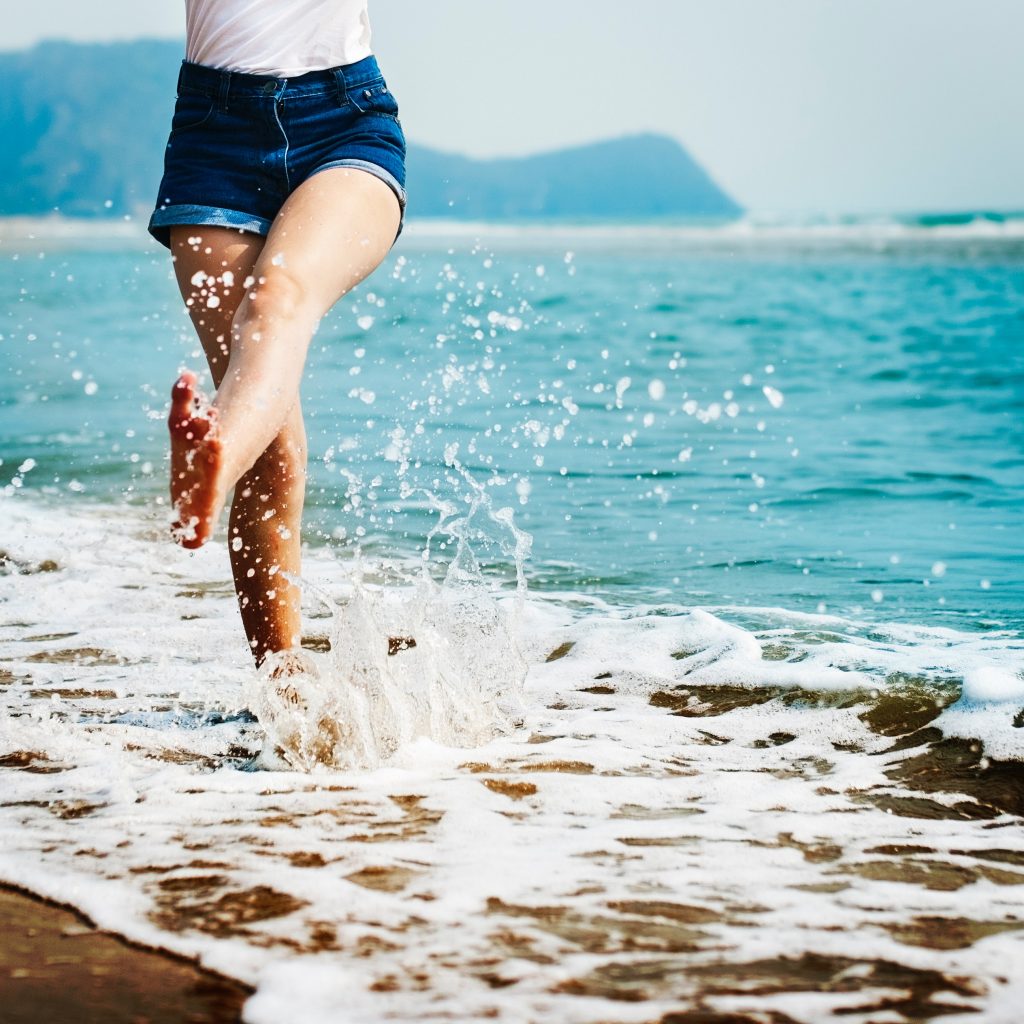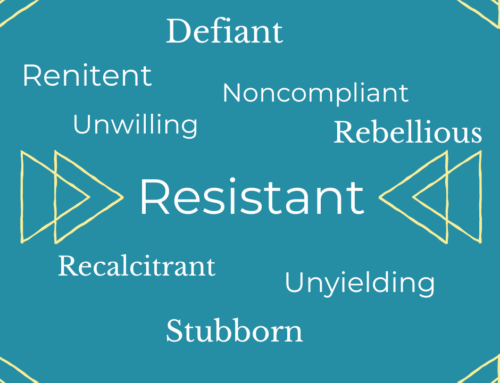Because anorexia is considered a complicated illness, a simple strategy to reduce anorexia anxiety may not sound realistic. The anxiety that accompanies anorexia can be extreme. For many parents, relieving their anorexic teen’s anxiety becomes an important goal in treatment. When everything else feels complicated, a simple way to reduce anorexia anxiety is a welcome tool.
Anxiety and Anorexia
With anorexia and anxiety, it can be hard to see where one begins and the other one ends. Many teens have anxiety before they develop anorexia. But anxiety can also remain long after weight restoration. Restricting food can be a way for teens to reduce their anxiety. Therefore it makes sense that when the ability to restrict food is taken away, anxiety will come on strong.
Teens with anorexia are terrified to eat and to gain weight, and that is exactly what parents ask them to do at every meal and snack. The worst part is that their level of anxiety usually increases as they near weight restoration. It can be discouraging to realize that anxiety often intensifies in your teen as anorexic behavior decreases.
Even when parents know that anxiety is a normal part of the recovery process, seeing their child in more distress as recovery progresses is challenging.
When Anxiety Persists
While parents are hopeful that weight gain will relieve their teen’s emotional distress, a return to physical health isn’t always a cure for anxiety. Unfortunately, anxiety may persist. It is understandable for parents to become frustrated when treatment and weight restoration have done little or nothing to relieve their teen’s anxiety.
For example, a treatment team works with your teen on coping skills, but she reports that they don’t work. You could come to the conclusion that major meltdowns are inevitable, and there is nothing you can do about them. Another choice could be to give up, hoping that her extreme anxiety won’t cause significant consequences in her life. You could dig deep and trust yourself to keep searching for ways to reduce her anxiety.
I think most moms want to believe there is something we can do. Of course we don’t give up. We dig deep.
Parents Can Help
While you are digging away in the trenches, it is important to remember that your teen’s recovery takes time, and that all attempts at helping her reduce anorexia anxiety are worthwhile. Even when nothing seems to help, it is always worth the effort to keep trying.
When you’ve done all you can do to find effective treatment for your anorexic teen, but your teen is still in distress, it doesn’t hurt to try some ideas of your own. I encourage parents of anorexic teens to rely on their instincts to lead them to creative parenting solutions. By believing in your ability as a parent, you can discover effective ways to support your teen on the long roller coaster ride of anorexia. Surprisingly, the simplest things may work when many other things have failed. In fact, the simple strategy I discovered to reduce anorexia anxiety comes from a method I used to calm my kids when they were babies.
Take It Outside
I remember when my kids were babies, and I couldn’t get them to stop crying. All I had to do was open up the door, walk outside with them, and they would almost immediately stop crying, look around, and become calm. I had no idea something so easy could work until I tried it. Not only was it effective the first time, it became a strategy that I used regularly when the usual attempts to calm them down didn’t work.
During one of my anorexic teen’s anxiety attacks that could have turned into hours of crying and resulted in homework and studying not getting done which would have led to more anxiety, I wondered…
What would happen if I applied my inadvertently successful old parenting strategy to my anxious teen? Would it be as successful as it was to calm a crying baby?
I put it to the test.
I opened the back door and walked her outside.
It wasn’t as immediate or as magical as when she was a crying baby, but soon her breathing slowed, and she began calming down. We sat down and did a simple mindfulness exercise.
I was shocked at how effective a tool it was to combat her debilitating anxiety. She noticed how well it worked, and she was somewhat surprised too. After only a few minutes, she was able to go back inside and calmly complete her homework.
Become Mindful
To do this mindfulness exercise with your teen, go to an outside space, and work on one sense at a time.
- First, look around and notice what you see—colors and shapes, the water in the pool, trees, the birds, a table and chairs, grass, a fence.
- Then, turn your attention to what you hear—a waterfall, a breeze in the trees, a dog barking, geese honking as they fly overhead, kids playing, a car alarm beeping.
- Now, notice what you smell—the smoky scent of a barbeque grill, the piney odor of cypress bushes, roses, rain, gasoline.
- Next, touch what is around you—the surface of the tile on the outside deck, the natural smoothness of a rock, the coolness of water on your fingertips, the sharp point of a leaf on a holly bush.
A Shift In Focus
It will only take minutes for your teen to switch focus from her anxiety to what her senses become aware of when she makes a conscious decision to shift her attention toward something else. That shift in focus is available at all times. It takes some practice, but it becomes more natural over time. I thought a simple strategy to reduce anorexia anxiety probably didn’t exist. It sounds too simple, I know. Try it. Your teen may have the same response mine did.
Create Your Own Strategy
Variations of this exercise can also be helpful. You can create your own simple strategy to reduce anorexia anxiety by trying different ideas to see what works. Simply going outside and into nature can be enough for your teen to shift focus away from her anxiety without going through the steps of the mindfulness exercise. Or, if you are unable to go outside, the mindfulness exercise can be done indoors. Take the same steps, working through the senses of sight, sound, smell, and touch to help your teen shift attention away from anxiety toward an awareness of things outside herself. It can also be effective to watch a video or listen to a recording of nature. Beautiful visuals and sounds of nature can serve as useful distractions from the chronic anxiety that most anorexic teens experience.
Bonus Benefit
As the ones who spend the most time with our anorexic teens, we parents have to learn to manage our own anxiety about their anxiety. We will all have moments when we get tired, frustrated, and we are more likely to let our anxiety affect how we respond to her anxiety. One of the best things about walking outside with our teens and taking them through this mindfulness exercise is that we can reap the benefits of it too. Taking it outside and becoming mindful is a way to remove ourselves from the constant fight or flight response that having an anorexic teen can trigger. Just as it is available to our teens at all times, this strategy is something we can always use to manage our own anxiety.
Sometimes the simplest things surprise us. The simplest things sometimes show us we can help our teens and help ourselves at the same time.
If you are stuck in anxiety as you care for your anorexic teen, I can help. Contact me at jenni@peacemealcoach.com or schedule a free consultation at www.peacemealcoach.com.






